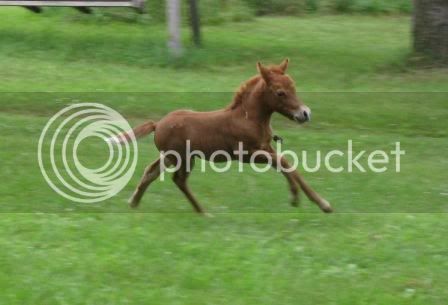Becky
Well-Known Member
Anyone dealt with blind mares foaling? Did you take any extra precautions? How do the mares deal with their foals after delivery especially since they can't see them?

Excuse me for saying something, and maybe I'm just taking this the wrong way, but what kind of a question is this? By accident or choice, the implication is that they have done something wrong--which they haven't. Blindness is no reason not to breed -- it's not like breeding two dwarves together. There are many reasons for blindness -- I breed appaloosas, and sometimes they can get a condition that causes them to go blind. I also have a couple of mares who are "night blind", but they produce wonderful babies, and I just make accommodations for them at night. This condition is a risk for appaloosa horses, and many appaloosas have been successfully bred with night blindness or even after going blind.
So maybe I'm off to a bad day, but your question to this breeder just hit me wrong. I don't mean to be rude either!
You could do that, but I've used a halter or dog collar before. Don't put it on right at birth. If she foals in a stall, she shouldn't need one. Put it on @ day 2 or 3 prior to turning them outside and allow her to learn the bell for 1 or 2 days.What way would you attach bells to the foal? Braid them into the mane?

Sounds like a responsible, quality breeder to me!I have bred Show jumpers for many years and for the last 3 we use AI and surrogates but all our stallions and eggs are chosen for quality in conformation and character. I only reproduce if they have a long string success. As for my very humble mini barn I am trying to find the correct combination of stallion and mares that will produce good quality foals.
Enter your email address to join: